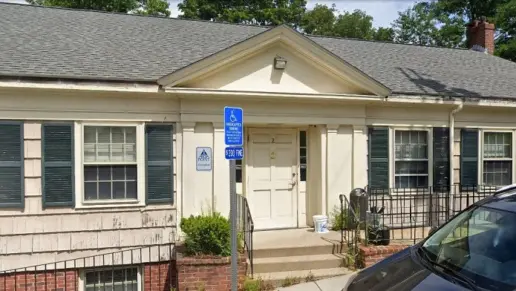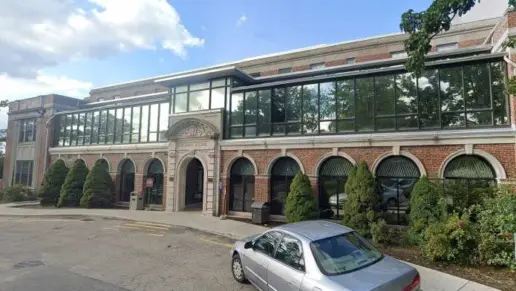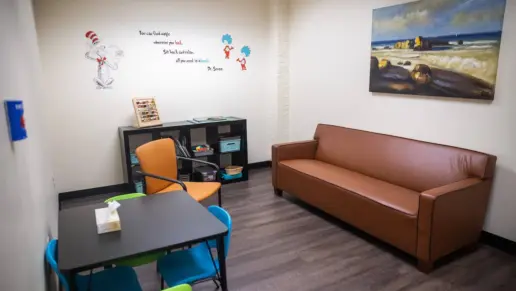About Judge Baker Childrens Center – Child Therapy
You may know the Baker Center for Children and Families by its former name, Judge Baker Children’s Center. This facility is affiliated with Harvard Medical School and is more than 100 years old. Their Boston, Massachusetts location has a plethora of programs and services. They provide therapy to children, teens and young adults as well as parents.
A Variety of Programs Available
The Center of Effective Therapy is one program under the Baker Center. It is in Boston, Massachusetts and serves people aged two to 22 who have mental health challenges. They also provide training and workshops to schools. They also offer a sliding scale to try and make therapy accessible for more people.
When you first arrive, they’ll perform an evaluation. This is an in-depth chat and interview with the child(ren) and parents to gather information so the team can more clearly understand the issues that need to be addressed.
Dive into the Program
With input from the assessment, they’ll create a unique treatmenr program for each client. They identify the behavioral issues present and the best way to address them. This is only the initial treatment plan and is adapted as each client’s needs change. The programs they offer include individual therapy and parent or guardian coaching/training support. Individual therapy is generally cognitive behavioural therapy which asks you to challenge your thought patterns to help with negative behaviors.
I think their Modular Approach to Therapy for Children with Anxiety, Depression, Trauma, or Conduct Problems program is really neat. MATCH-ADTC is a flexible, evidence-based therapy for kids and teens (ages six to 17) who are struggling with anxiety, depression, trauma, or behavior challenges.
Instead of a one-size-fits-all approach, it offers 33 different treatment modules that therapists can mix and match to fit each child’s needs. That means it’s super adaptable—especially for kids dealing with more than one challenge at a time. Research shows it often works faster and more effectively than other treatments. Plus, it helps families understand what’s going on and gives them practical tools to support their child’s progress.
Support for Parents and Families
The Child-Adult Relationship Enhancement (CARE) program helps parents and children connect. They’ll show you how to identify maladaptive thinking patterns and notice and identify the self-critic in yourself. This helps you understand the thought patterns that don’t serve you so you can learn how to rephrase what you are saying to yourself.
Their Behavioral Parent Therapy (BPT) program is geared toward helping children with non-compliance or behavioral issues. Additionally, there is parent-child interaction therapy (PCIT). PCIT Is unique and is used to enhance how parents deal with and understand their children’s behavior. It’s for parents who have problems with emotional and behavioral management.
Rehab Score
Gallery
Other Forms of Payment
Self-pay involves paying for treatment out of your own pocket. You can use savings or credit, get a personal loan, or receive help from family and friends to fund your treatment. If you don't have insurance or your insurance plan doesn't cover a specific program, self-pay can help ensure you still get the care you need.
Sliding scale payments are based on a client's income and family size. The goal is to make treatment affordable to everyone. By taking these factors into account, addiction recovery care providers help ensure that your treatment does not become a financial burden to you or your family, eliminating one barrier to care.
Addiction Treatments
Levels of Care
Treatments
Mental health rehabs focus on helping individuals recover from mental illnesses like bipolar disorder, clinical depression, anxiety disorders, schizophrenia, and more. Mental health professionals at these facilities are trained to understand and treat mental health issues, both in individual and group settings.
Programs

Clinical Services
Cognitive Behavioral Therapy (CBT) is a therapy modality that focuses on the relationship between one's thoughts, feelings, and behaviors. It is used to establish and allow for healthy responses to thoughts and feelings (instead of unhealthy responses, like using drugs or alcohol). CBT has been proven effective for recovering addicts of all kinds, and is used to strengthen a patient's own self-awareness and ability to self-regulate. CBT allows individuals to monitor their own emotional state, become more adept at communicating with others, and manage stress without needing to engage in substance abuse.
Whether a marriage or other committed relationship, an intimate partnership is one of the most important aspects of a person's life. Drug and alcohol addiction affects both members of a couple in deep and meaningful ways, as does rehab and recovery. Couples therapy and other couples-focused treatment programs are significant parts of exploring triggers of addiction, as well as learning how to build healthy patterns to support ongoing sobriety.
Research clearly demonstrates that recovery is far more successful and sustainable when loved ones like family members participate in rehab and substance abuse treatment. Genetic factors may be at play when it comes to drug and alcohol addiction, as well as mental health issues. Family dynamics often play a critical role in addiction triggers, and if properly educated, family members can be a strong source of support when it comes to rehabilitation.
Group therapy is any therapeutic work that happens in a group (not one-on-one). There are a number of different group therapy modalities, including support groups, experiential therapy, psycho-education, and more. Group therapy involves treatment as well as processing interaction between group members.
In individual therapy, a patient meets one-on-one with a trained psychologist or counselor. Therapy is a pivotal part of effective substance abuse treatment, as it often covers root causes of addiction, including challenges faced by the patient in their social, family, and work/school life.
Trauma therapy addresses traumatic incidents from a client's past that are likely affecting their present-day experience. Trauma is often one of the primary triggers and potential causes of addiction, and can stem from child sexual abuse, domestic violence, having a parent with a mental illness, losing one or both parents at a young age, teenage or adult sexual assault, or any number of other factors. The purpose of trauma therapy is to allow a patient to process trauma and move through and past it, with the help of trained and compassionate mental health professionals.
Staff
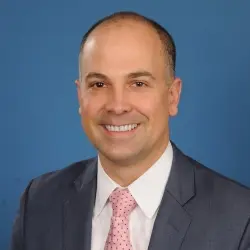
VP of Programs, Implementation & Training & Chief Psychologist
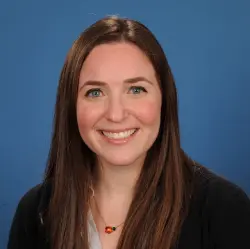
Senior Director of Outpatient Clinical Services

Director of Implementation & Associate Director of Training
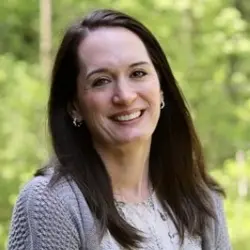
Director of Business Operations
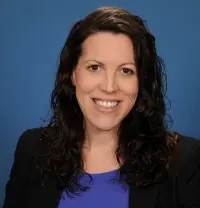
Director of Clinical Operations
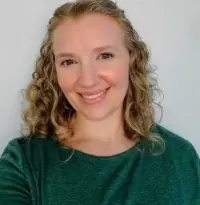
Assistant Director, Training Institute & Senior Staff Psychologist
Contact Information
53 Parker Hill Avenue
Boston, MA 02120
